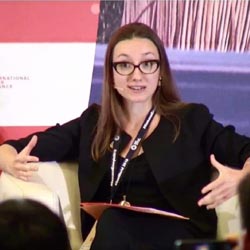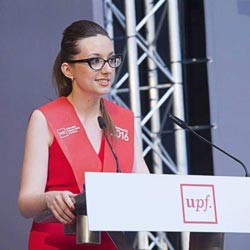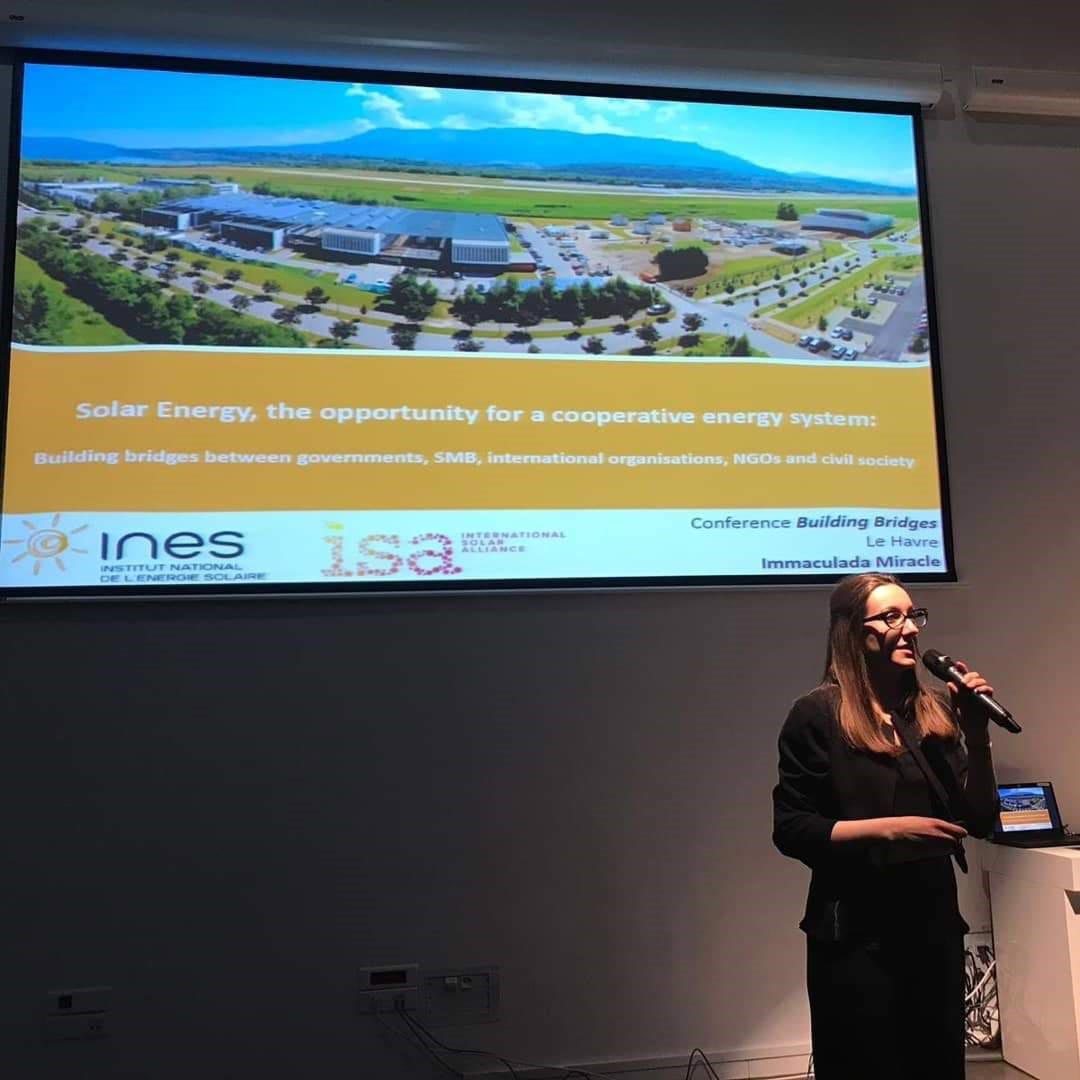Immaculada Miracle
8. alumni
“Solar energy offers the opportunity to develop a cooperative energy system”
-
 Immaculada Miracle, Political and Administration Sciences alumna, International Project Manager at the French National Solar Energy Institute (Savoie Technolac, Chambéry, France)
Immaculada Miracle, Political and Administration Sciences alumna, International Project Manager at the French National Solar Energy Institute (Savoie Technolac, Chambéry, France)
Immaculada Miracle Montserrat graduated from UPF with a degree in Political and Administration Sciences in 2016. Her interest in integrating and rethinking economic vision with deep historical and humanistic references led her to France. She moved to the neighbouring country to pursue a master’s degree in International Development (specializing in the environment, human rights and Europe) at Sciences Po University in Paris.
Whilst pursuing her master’s degree, she began to work (remotely) with the Oxford Institute of Energy Studies and the Paris-based Institute of Sustainable Development and International Relations (IDDRI). For the past two years, she has worked as a project manager for Europe, Latin America and the Caribbean at the French National Solar Energy Institute (INES) and the International Solar Alliance (ISA).
‘Solar energy offers the opportunity to develop a cooperative energy system. My main task at the INES is to promote a symbiotic partnership between two key areas of solar energy – research-innovation and training – whilst negotiating with different stakeholders: governments, companies, international organizations, NGOs and civil society’, she explains.
But if promoting renewable energy is currently technically and economically viable, what is keeping it from becoming established? ‘My role at the INES underscores the need for the various actors to embrace the political and institutional will to promote solar energy in order to change how complex environmental challenges play out and to work for a sustainable future’, she says.
To exemplify this idea, Immaculada uses a literary reference: ‘In his book Democracy in America, Tocqueville wrote that it was necessary to “develop and perfect the art of associating”. Years later, in 2020, we know that ‘chacun-pour-soi’, or every man for himself, no longer works and we are stressing the importance of cooperation between the parties.’
Looking to the future, Immaculada believes in the need to continue working cooperatively in order to enable the relationship that human beings establish with our solar and community systems to progress.
In the field of solar energy, she believes it is essential to work with local and regional actors, interacting with the context and socioeconomic needs of each country. Looking to the future, she believes in the need to strengthen collaborative work in order to enable the relationship that human beings establish with our solar and community systems to progress.
She comes back to Catalonia often, for personal reasons and professional projects related to her missions in Europe: in fact, the INES works with certain organizations, such as Ecoserveis or the Catalan Energy Research Institute (IREC), as well as on potential avenues for collaboration with UPF in the framework of the Planetary Wellbeing project.
Immaculada recalls her time at the university as a home away from home. ‘In a way, my time at UPF was the embryo for who I am today. It has allowed me to apply, review and, where necessary, reconsider what I learnt in my four years there.’ A strong work ethic, analytical skills, critical thinking and teamwork are some of the traits that her time at the university allowed her to include in her personal background.
Photo gallery
Immaculada Miracle in different work situations and making a speech at the UPF Graduation Ceremony



